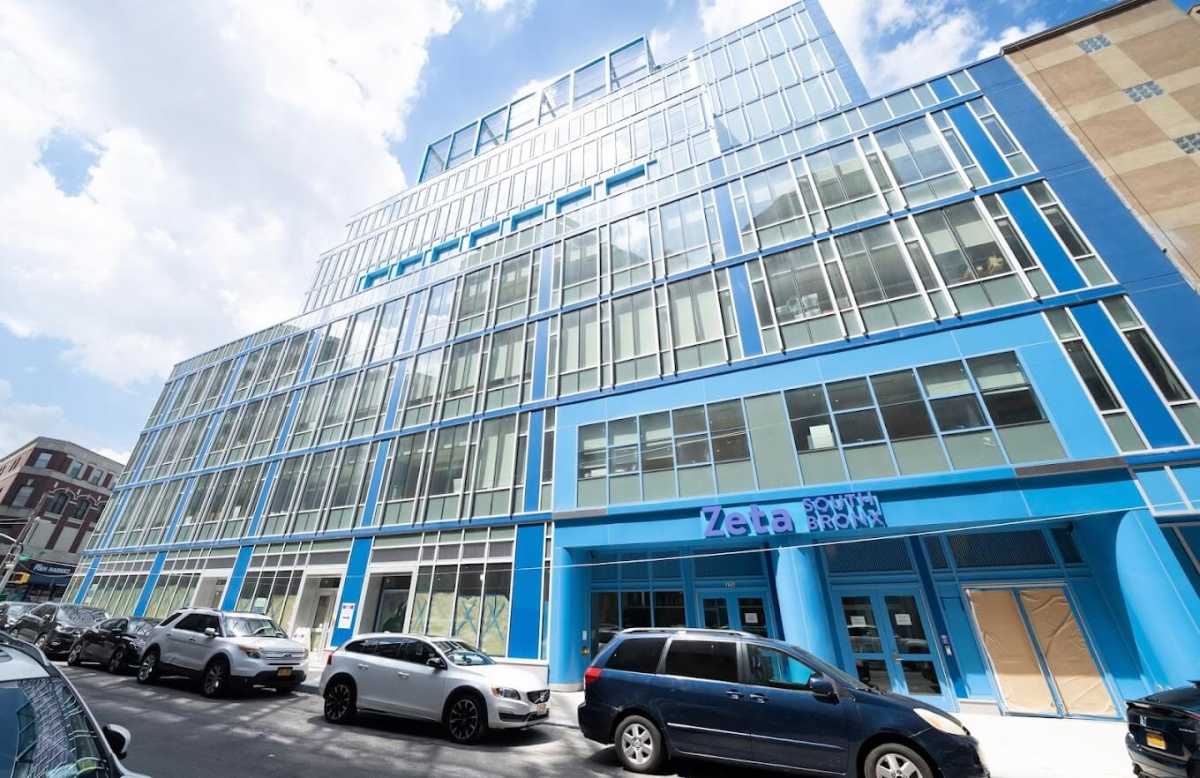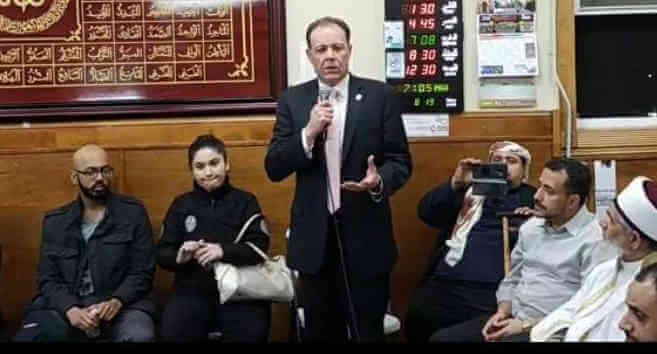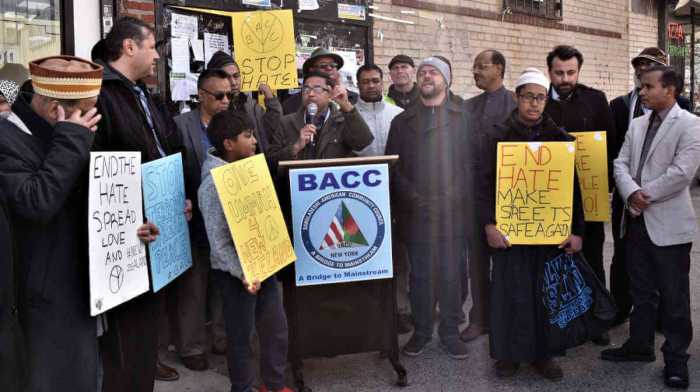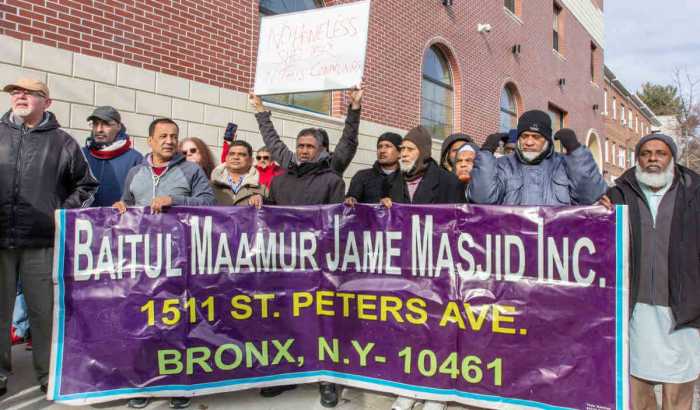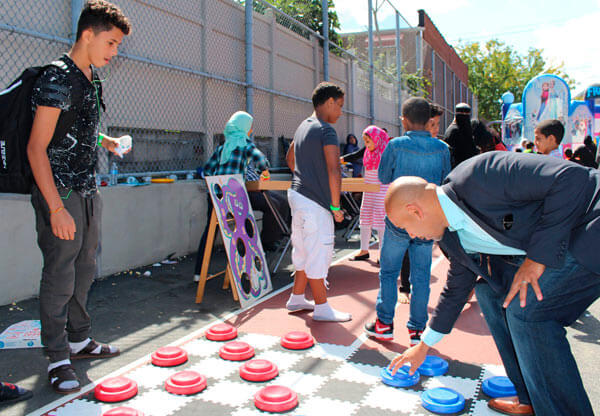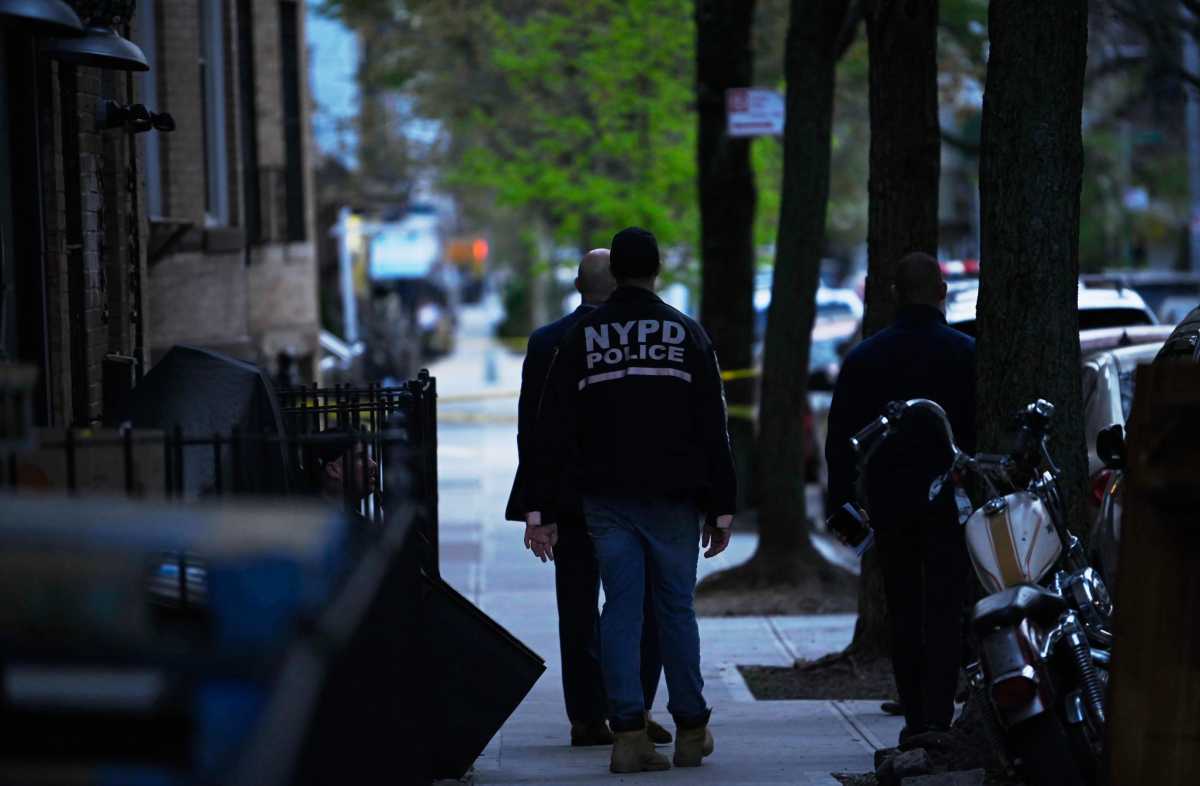A Bronx charter school principal is pushing for the state’s Education Department to revamp its 2024 testing schedule — which currently conflicts with Eid al-Fitr, the Islamic celebration that marks the end of Ramadan — to better accommodate New York’s observing Muslim students and teachers.
In a letter sent to New York State Education Department (NYSED) Chancellor Lester Young Jr., on Monday, Zeta South Bronx Elementary School principal Amenata Magiraga is calling on the state to reschedule the English Language Arts assessment, which currently falls on April 10-12, 2024 – coinciding with Eid, one of the holiest days of the Islamic year.
Charter schools align to the same New York state standards, and take the same state exams, as public schools.
Magiraga said that NYSED has dismissed “multiple attempts” to revise its 2024 academic calendar to better accommodate Muslim students, who traditionally do not attend school on Eid. NYSED’s alternative is to offer Eid-observing students make-up assessments the following Monday on April 15, 2024, but Magiraga, who is Muslim, says Mondays are a “typically poor assessment” days for students after a weekend.
Nearly 800,000 Muslims live in New York City, which is home to 22% of the American Muslim population, according to a report by the Institute for Social Policy and Understanding, a research organization focused on Muslim Americans.
However, visibility and consideration for the city’s practicing Muslims in educational and professional spaces, has often been inconsistent, Magiraga told the Bronx Times. She added that the prayer rooms that she wishes she had as a student, are provided at the Zeta South Bronx Elementary School on Westchester Avenue she now oversees.
“I was once a Muslim student who was once overlooked, and I’m not just advocating for our Muslim students, but all students who shouldn’t feel like they have to choose between their education and their religion,” she told the Bronx Times. “It’s about creating space for all communities, and it involves reflection and consideration.”
This year’s schedule did not conflict with Eid, as the English Language Arts exam doesn’t begin until April 19.
Magiraga said a simple fix would be to move the exam schedule next year by a week, a consideration that has been done to ensure that there is no conflict with Easter and Passover.
New York state tests are traditionally administered on Tuesdays, Wednesdays and, sometimes, Thursdays. Magiraga claims state education officials have ignored requests for other alternatives for the state’s reading exam that would accommodate Muslim students.
“The scheduling of these assessments places an unfair burden on many of our Muslim students and teachers who celebrate Eid as a religious holiday — which Zeta has corresponded about with members of your office since February,” Magiraga said in her letter. “However, the current 2024 state testing calendar — intentional or not — feels like a slight to New York’s many Muslim families, who deserve an equitable testing schedule for their kids. I understand that oversights happen, but to then deny the opportunity to solve this issue to ensure an even playing field for Muslim students is beyond an oversight, and simply unacceptable.”
NYSED officials told the Bronx Times that students and schools are provided with a testing timeframe that allows flexibility to assess student within that with such conflicts.
“No other school in New York State, district, charter, or even the Islamic non-public schools in the state that administer state exams, have expressed these concerns regarding this matter as expensive flexibilities and alternatives are provided,” said a NYSED spokesperson in a statement. “As such, students have time to test outside Eid and the New York State Education Department has accordingly provided accommodations for students celebrating the holiday.”
During Ramadan, observing Muslims fast from sunrise to sunset, eating the pre-dawn meal, suhoor, early in the morning and the fast-breaking meal, iftar, in the evening. Some Bronx students, like high schooler Tariq Zaidi, says it can be a struggle to express academic concerns and conflicts with teachers and admins, and that there is a “lack of sympathy and understanding” from people who do not identify as Muslim and have a lack of knowledge about the holiday.
“I think there’s a misunderstanding for many of my school teachers and administrators because they might not be familiar with the demands of our holidays, and that we may not be ready to take a test the next day,” said Zaidi, who attends Lehman High School in Westchester Square. “I think it comes down to a better understanding of a person’s cultural and religious celebrations and observances, and catering a schedule that helps them be both a good student and a good believer.”
Most school districts across the country have historically maintained calendars that only take Christian holidays into account, mainly Christmas and Easter. Some districts with large Jewish populations also mark Jewish holidays.
NYC took a major step in 2015, announcing that it would close the public school system in observance of Eid al-Adha and Eid al-Fitr. Other school districts in Minneapolis, Baltimore and, most recently, New Jersey have followed suit.
This story was updated on April 13 at 4:08 p.m. to reflect a statement from NYSED.

